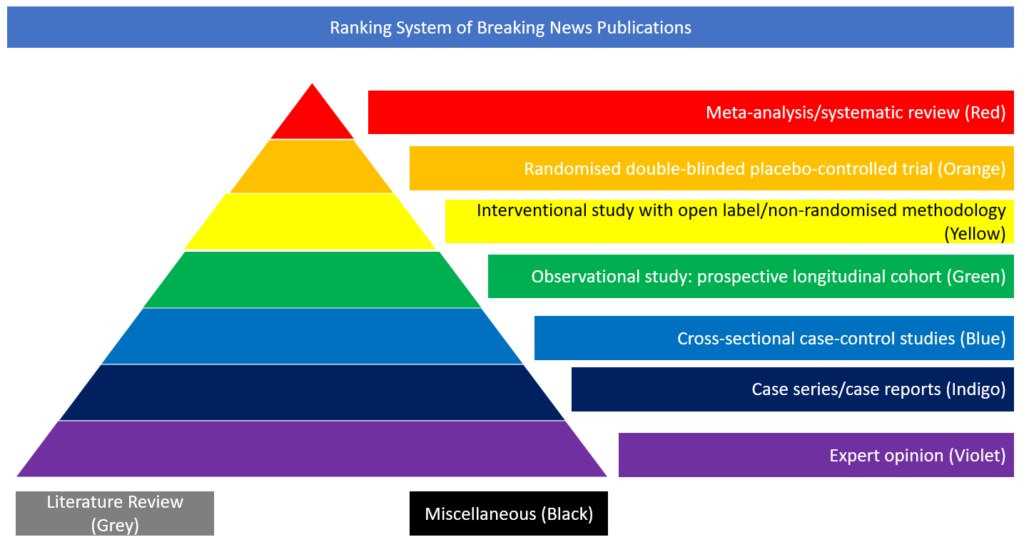Case series/case reports
The objective of this study was to report outcomes on patients with multiple sclerosis (MS) and related disorders with COVID-19 illness. From March 16 to April 30, 2020, patients with MS or related disorders at NYU Langone MS Comprehensive Care Center were identified with either laboratory-confirmed or suspected COVID-19.
The diagnosis was established using a standardised questionnaire or by review of in-patient hospital records. 76 patients (55 with relapsing MS, of whom 9 had paediatric onset; 17 with progressive MS; and 4 with related disorders) were identified. Thirty-seven underwent PCR testing and were confirmed positive. Of the entire group, 64 (84%) patients were taking disease-modifying therapy (DMT) including anti-CD20 therapies (n = 34, 44.7%) and sphingosine-1-phosphate receptor modulators (n = 10, 13.5%). The most common COVID-19 symptoms were fever and cough, but 21.1% of patients had neurological symptom recrudescence either preceding or coinciding with the infection. A total of 18 (23.7%) patients were hospitalised; 8 (10.5%) had COVID-19-related critical illness or death. Features more common among those hospitalised or with critical illness or death were older age, presence of comorbidities, progressive disease, and a non-ambulatory status. No DMT class was associated with an increased risk of hospitalisation or fatal outcome. In this study, most patients with MS with COVID-19 did not require hospitalisation despite taking DMTs. Factors associated with critical illness were similar to the general at-risk patient population. DMT use did not emerge as a predictor of poor COVID-19 outcome in this preliminary sample.
https://nn.neurology.org/content/7/5/e835













